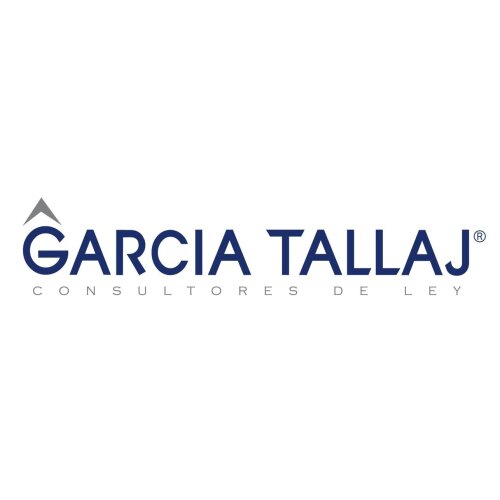Best Contract Lawyers in Sosua, Cabarete
Share your needs with us, get contacted by law firms.
Free. Takes 2 min.
List of the best lawyers in Sosua, Cabarete, Dominican Republic
About Contract Law in Sosua, Cabarete, Dominican Republic
Contract law in Sosua and Cabarete, located on the country's northern coast, operates under the civil law tradition of the Dominican Republic. Legal agreements are governed by national statutes, mainly the Civil Code, but local practices and norms also influence how contracts are interpreted and enforced. Contracts are common in various transactions such as property rentals or sales, business dealings, construction projects, employment arrangements, and service agreements. It is essential for both locals and foreigners to understand that once a contract is signed, it is considered binding and enforceable unless proven otherwise.
Why You May Need a Lawyer
Engaging a lawyer is highly recommended if you are entering any significant contract in Sosua or Cabarete. Common scenarios where legal assistance is needed include purchasing or renting property, starting a business, hiring contractors or employees, or entering into partnership or franchise agreements. A lawyer can ensure that all terms are legal and clear, protect your interests, and help navigate any disputes that may arise. Non-Spanish speakers or those unfamiliar with Dominican law will particularly benefit from legal support to avoid misunderstandings and potential legal pitfalls.
Local Laws Overview
Contracts in Sosua and Cabarete are governed primarily by the Dominican Civil Code. The law requires that contracts be freely entered into and that the parties have the legal capacity to contract. Some agreements must be in writing to be enforceable, especially those involving real estate transactions, long-term leases, and high-value purchases. Foreign buyers and investors should be aware of requirements such as legal documentation, notarization, and possible translation of agreements into Spanish. Breaching a contract may result in legal action and compensation for damages, making it crucial to thoroughly review any contract before signing.
Frequently Asked Questions
What constitutes a binding contract in Sosua, Cabarete?
A contract is considered binding if there is a clear agreement between parties, lawful subject matter, consent by legally competent parties, and, in some cases, the contract is properly documented and signed.
Do contracts have to be in Spanish?
While contracts between private parties may be drafted in any language, official contracts, especially those registered with government entities or notaries, must be in Spanish or accompanied by an official Spanish translation.
Is a verbal agreement enforceable?
Some verbal agreements are valid, but it is difficult to prove their terms if a dispute arises. Written contracts are strongly recommended, particularly for significant transactions such as property or business deals.
Can a foreigner sign a contract in Sosua or Cabarete?
Yes, foreigners can enter binding contracts, but should ensure compliance with Dominican legal requirements. In many cases, contracts involving foreigners must be notarized and, occasionally, translated into Spanish.
How are disputes over contracts resolved?
Contract disputes are typically resolved through negotiation, mediation, or litigation in local courts. It is best to include a dispute resolution clause in the contract specifying jurisdiction and methods of settlement.
Are deposits or down payments refundable?
This depends on the contract's language. Some deposits are refundable under certain conditions, while others are non-refundable. Always clarify and document these terms before making any payments.
What happens if someone breaches a contract?
If one party fails to fulfill their obligations, the other party may seek legal remedies such as contract enforcement or financial compensation for damages caused by the breach.
Is notarization required for contracts?
Notarization is mandatory for contracts involving real estate transfers, powers of attorney, and other significant transactions. For minor contracts, it may not be required but is often recommended for evidentiary purposes.
How can I make sure a contract is legal?
Have a qualified Dominican lawyer review the contract. Ensure all parties are identified, roles and obligations are clear, and the contract complies with current Dominican laws and regulations.
Can I cancel a contract after signing?
Depending on the contract and the grounds for cancellation, you may be able to rescind an agreement if there is mutual consent, fraud, misrepresentation, or other just legal cause. Legal advice is essential in these cases.
Additional Resources
For further information and assistance, consider contacting the following:
- Local law firms specializing in contracts and real estate law.
- The Chamber of Commerce and Production of Puerto Plata for business contracts.
- The Notary Association of the Dominican Republic for notarized agreements.
- The Embassy or Consulate of your home country can provide guidance to foreigners regarding legal requirements.
- Dominican Ministry of Justice for information on the Civil Code and contract law.
Next Steps
If you require legal assistance for a contract in Sosua or Cabarete, begin by gathering all relevant documents and details about the agreement. Seek a reputable local lawyer who speaks your language or can provide translation services. Be transparent about your goals and concerns, and ask for a clear explanation of all legal terms and implications before signing anything. Remember to keep copies of all contracts and correspondences, and always verify the credentials and reputation of anyone with whom you do business.
Taking these proactive steps will help ensure your interests are protected and that your contractual experience in Sosua and Cabarete is smooth and secure.
Lawzana helps you find the best lawyers and law firms in Sosua, Cabarete through a curated and pre-screened list of qualified legal professionals. Our platform offers rankings and detailed profiles of attorneys and law firms, allowing you to compare based on practice areas, including Contract, experience, and client feedback.
Each profile includes a description of the firm's areas of practice, client reviews, team members and partners, year of establishment, spoken languages, office locations, contact information, social media presence, and any published articles or resources. Most firms on our platform speak English and are experienced in both local and international legal matters.
Get a quote from top-rated law firms in Sosua, Cabarete, Dominican Republic — quickly, securely, and without unnecessary hassle.
Disclaimer:
The information provided on this page is for general informational purposes only and does not constitute legal advice. While we strive to ensure the accuracy and relevance of the content, legal information may change over time, and interpretations of the law can vary. You should always consult with a qualified legal professional for advice specific to your situation.
We disclaim all liability for actions taken or not taken based on the content of this page. If you believe any information is incorrect or outdated, please contact us, and we will review and update it where appropriate.









